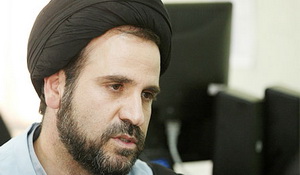
RNA – Hujjat al-Islam Sayyed Kazem Sayyed-Baqeri, an assistant professor of Islamic Culture and Thought, has written a report examining the nature, necessity, history, types and mechanisms of oversight over political power in Islamic jurisprudence pertaining to governance.
The following is a continuation of his report.
Explain the history of the discussion of oversight and the historical experience of the oversight of political power.
When we look at the events throughout history; the experience of history, the assets and the thoughts of mankind and the powerful, they emphasize to us that there must be oversight over political power. In our religious literature, there is also an argument about power. In verse 83 of Surah al-Qasas, God says: “This is the abode of the Hereafter, which We shall grant to those who do not desire to domineer in the earth nor to cause corruption, and the outcome will be in favour of the Godwary.”
There is a famous narrative in the Collection of Warram on page 155, which says: “The last thing of the love of this world which comes out from the hearts of the righteous believers is love of prestige and position.” In Kitab al-Kafi, a hadith is narrated from the Prophet Muhammad, who said: “Oh Abu Dharr! The love of wealth and position harms man’s religion more than two vicious wolves injure the herd of sheep which they ambush at night time so that they have all the time till morning to ravage the herd of sheep.” That is, the danger of prestige for a believer is greater than two vicious wolves.
Therefore, Imam Ja’far al-Sadiq said: “Beware of those who seek power, for by God, none followed the footsteps of such a person, except that he plunged himself and others into perdition.” That is, when one gains power, it is possible to bring himself, as well as others who follow him, to perdition.
In the biography of Imam Khomeyni, it is said if someone was looking for the Imam on a street or alley, Imam stood up and said what work do you have? If that individual did not have a particular job, Imam would forbid that person from following him.
There is the possibility that power and rule, destroys and corrupts mankind and this is stated in our religious literature and in Western thought as well.
The experiences and traits of power within mankind have led thinkers on this issue to the conclusion that corruption prevents power.
Oversight is referred to as observation alongside reflection and depth, that is to say, in oversight, there is a kind of observation along with contemplation. The term “oversight” also means ruling among the people, resolving their claims and helping them.
Oversight is vigilance and watchfulness alongside reflection and depth. This vigilance and depth can be key in different issues. For example, in jurisprudential and legal issues, when the meaning of the term “oversight” is mentioned, the discussion of the review, audit, valuation and evaluation of work is accomplished. In the words of some scholars in the science of law, oversight involves inspection, assessment and evaluation by the executives.
The meaning of the oversight of power is, in fact, a watch over the power, assessment and evaluation of the process of power and the way in which power is exercised. In a narration quoted from Imam Ali al-Ridha, it is stated: “When the Prophet of Islam sent the army to one area, he sent assured individuals along with them to bring news of the army and the commander to him.” Thus, there was also supervision over the commander in deploying an army division.”
Imam Ali (peace be upon him) in the letter of 53 Nahj al-Balaghah and Malek Ashtar’s treaty stated: “You should also check their [executives] activities and have people who report on them who should be truthful and faithful, because your watching their actions secretly will urge them to preserve trust with and to be kind to the people.” These affairs point to the necessity of oversight.
Source: vasael.ir
112/974